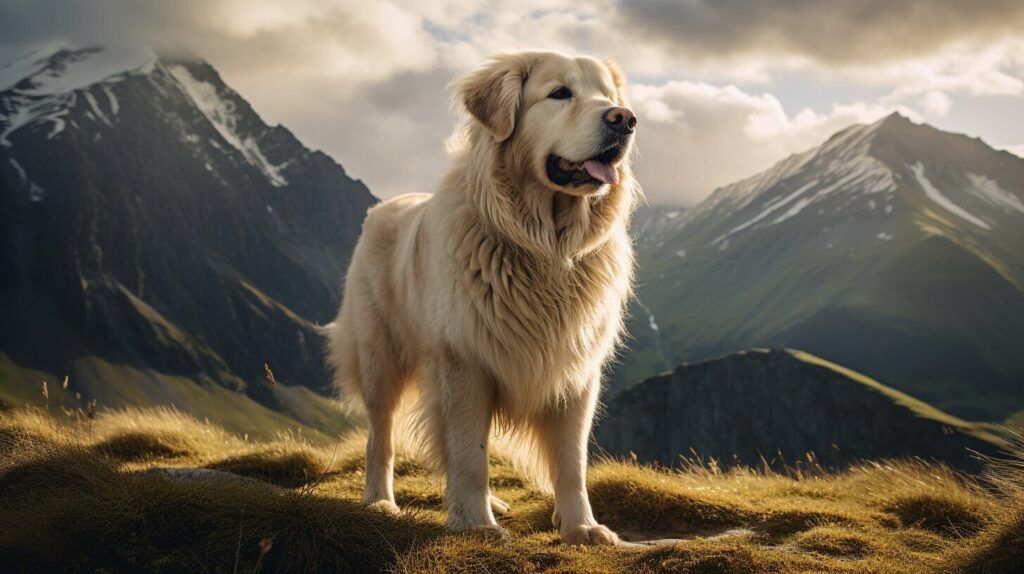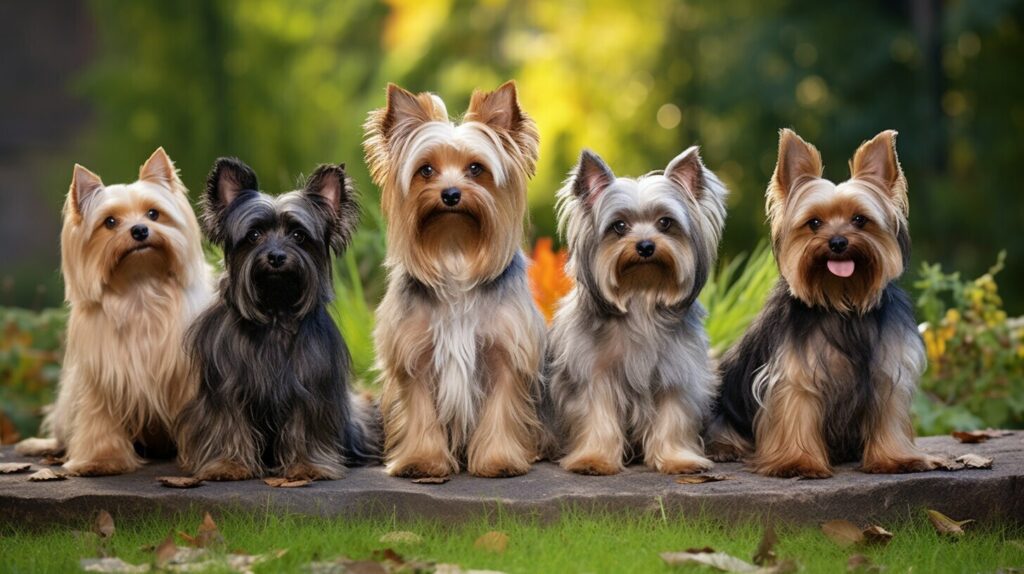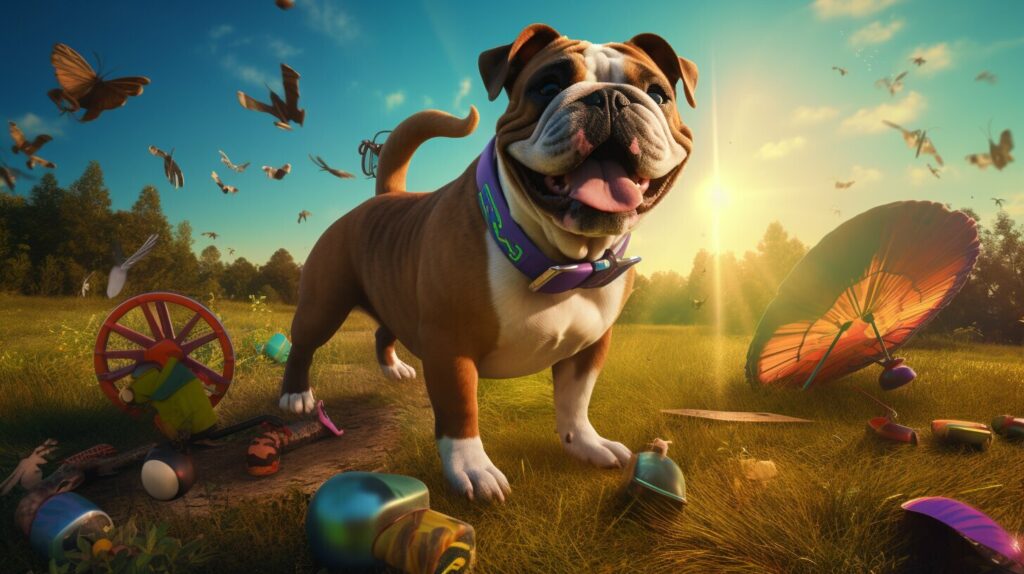If you’re considering adding a new dog to your family, it’s essential to choose a breed that will suit your lifestyle and needs. Pyrenees dogs, also known as Pyrenean Mountain Dogs, are a highly intelligent and loyal breed that can make wonderful companions for the right owner.
This comprehensive guide will provide you with all the information you need to know about Pyrenees dogs, from their physical characteristics and temperament to their care and training needs. By the end of this article, you’ll have a better understanding of whether a Pyrenees dog is the right choice for you.
Key Takeaways:
- Pyrenees dogs are also known as Pyrenean Mountain Dogs.
- This comprehensive guide will cover all aspects of Pyrenees dog ownership, including their characteristics, temperament, care, training, and more.
- By the end of this article, you’ll have a better understanding of whether a Pyrenees dog is the right choice for you.
Understanding the Pyrenees Dog Breed
If you’re considering adding a new furry family member to your home, Pyrenees dogs are a breed worth considering. These gentle giants are known for their loyalty, protective nature, and stunning appearance. Let’s take a closer look at the characteristics that make Pyrenees dogs so special.
Physical Appearance
Pyrenees dogs are large and majestic animals, known for their fluffy white coat and distinctive markings. They can weigh between 85 and 100 pounds and stand up to 32 inches tall at the shoulder. Although they have a strong and muscular build, they move with grace and elegance.
Coat
Their thick double coat is the hallmark of the Pyrenees dog breed. Their fur is soft to the touch and requires regular grooming to prevent matting and tangling. They shed twice a year, so be prepared for some extra vacuuming during those times. Their coat helps them stay warm in colder weather and also protects them from the sun when they’re outside on hot days.
Temperament
Pyrenees dogs are known for their calm and even-tempered personalities. They are fiercely loyal to their owners and have a strong protective instinct. They are also gentle with children and make excellent family pets. However, they can be independent and stubborn at times, so early and consistent training is crucial to ensure they grow up to be well-behaved dogs.
In conclusion, Pyrenees dogs are a wonderful breed with unique characteristics that set them apart from other dogs. From their striking appearance to their loyal and gentle nature, they are an excellent choice for anyone looking for a devoted companion.
The Temperament of Pyrenees Dogs
Pyrenees dogs are known for their loyal and protective nature. They were originally bred as livestock guardians in the Pyrenees Mountains, which has contributed to their independent and strong-willed temperament. Understanding their natural instincts and behavior is essential to properly care for a Pyrenees dog.
While they are typically gentle and affectionate with their family, Pyrenees dogs can be wary of strangers and other animals. Their natural guardian instincts can make them territorial and protective of their home and family. This can sometimes result in barking or aggression towards unfamiliar people or animals.
It is important to socialize Pyrenees dogs from a young age to prevent potential behavior problems. Early and consistent training can help establish boundaries and reinforce positive behaviors. This breed responds well to positive reinforcement techniques, such as rewards and praise for good behavior.
Pyrenees dogs are also known for their strong bond with their family. They thrive on attention and affection and are happiest when included in family activities. However, their independent nature means they may not always obey commands or follow routines without proper training and reinforcement.
Overall, Pyrenees dogs can make wonderful family pets with proper care, training, and socialization. Understanding their unique temperament and behavior is key to creating a positive and rewarding relationship with this loyal and protective breed.
Caring for Your Pyrenees Dog
Pyrenees dogs are known for their majestic appearance and protective nature. Proper care is crucial for their overall health and happiness. Here are some important tips for caring for your Pyrenees dog:
| Feeding | Grooming | Exercise | Health Care |
|---|---|---|---|
|
Pyrenees dogs are prone to obesity, so it is important to monitor their diet and portion sizes to maintain a healthy weight. Feed your dog high-quality dog food and avoid overfeeding. Consult with your veterinarian for personalized feeding recommendations. |
Pyrenees dogs have thick, fluffy coats that require regular grooming to prevent mats and tangles. Brush your dog at least once a week and consider professional grooming every few months. Trim their nails and clean their ears as needed. |
Pyrenees dogs are active and require regular exercise to maintain their physical and mental well-being. Take your dog for daily walks and provide opportunities for play and exploration. Ensure they have access to a secure and spacious outdoor area to roam and exercise. |
Regular veterinary check-ups are important for keeping your Pyrenees dog healthy. Vaccinations, parasite prevention, and dental care are all crucial components of their health care. Be aware of any potential health issues that are common in the breed, such as hip dysplasia, and take preventative measures when possible. |
By following these care tips, you can help your Pyrenees dog live a happy and healthy life.
Training Your Pyrenees Dog
Training a Pyrenees dog is essential for ensuring their obedience and good behavior, especially given their independent and strong-willed nature. Here are some tips to help you train your Pyrenees dog:
- Start early: Begin training your Pyrenees dog from an early age to establish good habits and avoid negative behaviors.
- Use positive reinforcement: Pyrenees dogs respond well to positive reinforcement, such as rewards and treats, for good behavior. Punishment or harsh training methods are not recommended for this breed.
- Include socialization: Socialization is crucial for Pyrenees dogs to interact well with other people and pets. Expose your dog to different environments, people, and pets from a young age to help them develop good social skills.
- Focus on obedience training: Basic obedience training is essential for Pyrenees dogs to learn how to follow commands, such as sit, stay, come, and heel. It’s important to be consistent and patient with training to achieve the best results.
- Address any behavioral issues: Pyrenees dogs can be prone to certain bad habits, such as barking excessively or digging. It’s important to address these issues early on and provide training to correct them.
Training your Pyrenees dog can be a challenging but rewarding experience. Consistency, patience, and positive reinforcement are key to achieving good results.
Bringing Home a Pyrenees Puppy
Bringing home a new Pyrenees puppy is an exciting and rewarding experience, but it’s important to be prepared before the big day. Here are some tips for ensuring a smooth transition for both you and your new furry friend:
Finding a Reputable Breeder
When searching for a Pyrenees puppy, it’s important to find a reputable breeder who prioritizes the health and well-being of their dogs. Look for breeders who are members of the Pyrenees breed club, follow ethical breeding practices, and provide proper socialization and care for their puppies.
Puppy-Proofing Your Home
Pyrenees puppies are curious and energetic, so it’s important to ensure your home is safe and secure for them. Puppy-proof your home by securing loose wires or cords, removing hazardous items from their reach, and setting up a comfortable and safe space for them to play and rest.
Essential Supplies
Before bringing your Pyrenees puppy home, make sure you have all the necessary supplies, such as food and water bowls, a comfortable bed, and high-quality puppy food. Also, invest in a sturdy leash and collar to help with training and outdoor walks.
Socializing Your Puppy
Pyrenees puppies thrive on socialization and interaction with their owners and other dogs. Introduce your puppy to new sights, sounds, and experiences to help them develop confidence and adaptability. Also, consider enrolling your puppy in puppy classes or obedience training to build a strong foundation for their development.
By following these tips, you can give your Pyrenees puppy the best possible start in their new home and set them up for a happy and healthy life with you.
Common Challenges with Pyrenees Dogs
If you’re considering a Pyrenees dog as a pet, it’s important to be aware of the potential challenges that come with this breed. While they are loving and loyal companions, they also have some unique characteristics that can be difficult to manage.
Barking
Pyrenees dogs have a tendency to bark, especially at night. This is a result of their natural guarding instincts, as they were historically used to protect flocks of sheep from predators. If you live in a densely populated area or have close neighbors, excessive barking could become a problem. Training and socialization can help address this issue.
Health Issues
Like all breeds, Pyrenees dogs are prone to certain health issues, such as hip dysplasia and bloat. It’s important to screen for these conditions and work with a reputable breeder who prioritizes the health of their dogs. Regular vet check-ups and proper nutrition and exercise can also help prevent health problems from arising.
Guardian Instincts
Pyrenees dogs have a strong instinct to protect their family and territory. While this can make them excellent watchdogs, it can also make them overly protective and territorial. This can manifest as aggressive behavior towards strangers or other animals. Early socialization and training can help mitigate these behaviors.
Pyrenees Dog Breed
Overall, Pyrenees dogs are a unique and wonderful breed. While they may come with their own set of challenges, they are loving and loyal companions who make wonderful family pets. With proper training and care, they can thrive in a variety of living situations.
Pyrenees Dogs and Children
Pyrenees dogs are well-known for their protective nature, making them a popular choice for families with children. However, it’s important to understand how to introduce a Pyrenees dog to your children and create a safe and happy environment for everyone.
When bringing a Pyrenees dog into a household with children, it’s essential to supervise all interactions and ensure that your children understand how to behave around the dog. Pyrenees dogs are patient and gentle with children, but they can become protective if they feel their family is threatened.
It’s also important to teach your children how to approach and handle the dog. Children should never approach a Pyrenees dog when it is sleeping or eating, and they should avoid pulling on the dog’s fur or tail. Teaching your children to respect the dog’s boundaries will help to create a positive and long-lasting relationship between them.
It’s also crucial to provide your Pyrenees dog with a safe space where they can retreat if they feel overwhelmed or tired. This can be a crate or a designated area in the home where the dog can have some alone time.
Overall, Pyrenees dogs can make wonderful additions to families with children if they are properly trained and socialized. By teaching your children how to interact with your dog and providing a safe environment for everyone, you can create a happy and harmonious household with your beloved Pyrenees dog.
Living with a Pyrenees Dog: Real Stories and Experiences
Pyrenees dogs, also known as Pyrenees Mountain Dogs or Pyrenean Mountain Dogs, are beloved by many for their loyal and protective nature. But what is it really like to live with one? Here are some real stories and experiences from Pyrenees dog owners.
“Our Pyrenees dog, Luna, is the best companion anyone could ask for. She’s fiercely protective of our family and has been known to chase off coyotes and even a black bear from our yard. But she’s also gentle and loving with our children and has a playful side. She’s a big part of our family and we wouldn’t have it any other way.”
-Samantha, Oregon
Many Pyrenees dog owners praise their dogs for their protective instincts, which makes them a great choice for families with children. However, these same instincts can also lead to challenges in socializing them with other dogs.
“Our Pyrenees, Duke, is the biggest love bug you’ll ever meet. He’s always by our side and never leaves our yard. But we’ve had to work on socializing him with other dogs. He can be wary of strangers and protective of our property, but with the right training he’s been able to make some dog friends.”
-Jason, Texas
Grooming a Pyrenees dog can also present its own unique challenges due to their thick double coat.
“We love our Pyrenees, Elsa, but keeping up with her shedding can be a full-time job! We have to brush her every day and even then there’s still hair everywhere. But it’s worth it for her sweet personality and loyalty.”
-Karen, California
Overall, Pyrenees dogs are a highly regarded breed for their loyalty and protective nature, but they also require a committed owner who is willing to put in the effort to properly train and care for them.
In Conclusion
After reading this comprehensive guide, you now have a better understanding of Pyrenees dogs and what it takes to care for them. Remember, Pyrenees dogs are loyal and protective pets with strong guardian instincts. They require proper care, training, and socialization to thrive in a loving home environment.
If you’re considering bringing a Pyrenees puppy into your home, make sure to find a reputable breeder and puppy-proof your home. Early and consistent training is essential, as is providing your Pyrenees dog with proper nutrition, exercise, and healthcare.
While Pyrenees dogs may present some challenges, their unique qualities and personalities are well worth the effort. Consider real stories and experiences from other Pyrenees dog owners to determine if this breed is the right fit for you and your family.
Overall, Pyrenees dogs are a wonderful breed that make loyal and beloved companions. With the right care and attention, you and your Pyrenees dog can enjoy a happy and fulfilling life together.
FAQ
Q: What are Pyrenees dogs?
A: Pyrenees dogs, also known as Pyrenean mountain dogs, are a large breed of working dog originally from the Pyrenees Mountains. They are known for their protective nature and loyalty.
Q: What size are Pyrenees dogs?
A: Pyrenees dogs are large dogs, typically weighing between 85 and 100 pounds. They stand about 25 to 32 inches tall at the shoulder.
Q: What is the temperament of Pyrenees dogs?
A: Pyrenees dogs have a calm and gentle temperament. They are known to be great with children and other animals. However, they can also be independent and strong-willed.
Q: How do I care for a Pyrenees dog?
A: Proper care for a Pyrenees dog includes regular feeding, grooming, exercise, and veterinary care. They have a thick double coat that requires regular brushing to prevent matting.
Q: Are Pyrenees dogs easy to train?
A: Pyrenees dogs are intelligent but can be stubborn. Early and consistent training is important to help them understand boundaries and expectations.
Q: Are Pyrenees dogs good with children?
A: Pyrenees dogs are generally good with children and make great family pets. However, as with any dog, proper supervision and interactions should be maintained.
Q: What are some common challenges with Pyrenees dogs?
A: Some common challenges with Pyrenees dogs include their tendency to bark, potential health issues, and their strong guardian instincts. Training and socialization are important for managing these challenges.
Q: Can you share some real stories and experiences from Pyrenees dog owners?
A: Pyrenees dog owners have shared stories about the unique qualities of these dogs, their loyalty, and their role as guardians. They have also mentioned the challenges of their size and potential health issues.



